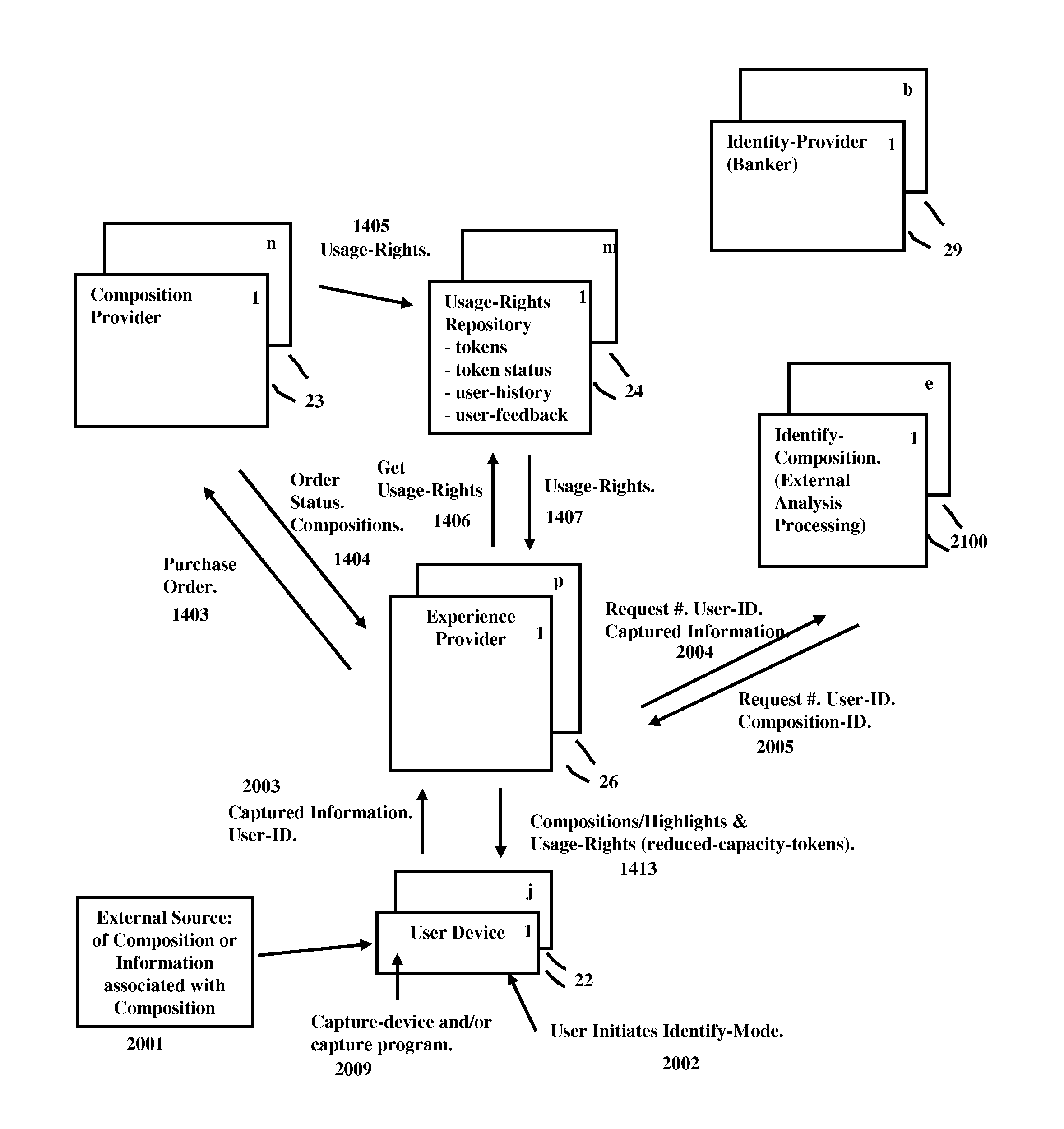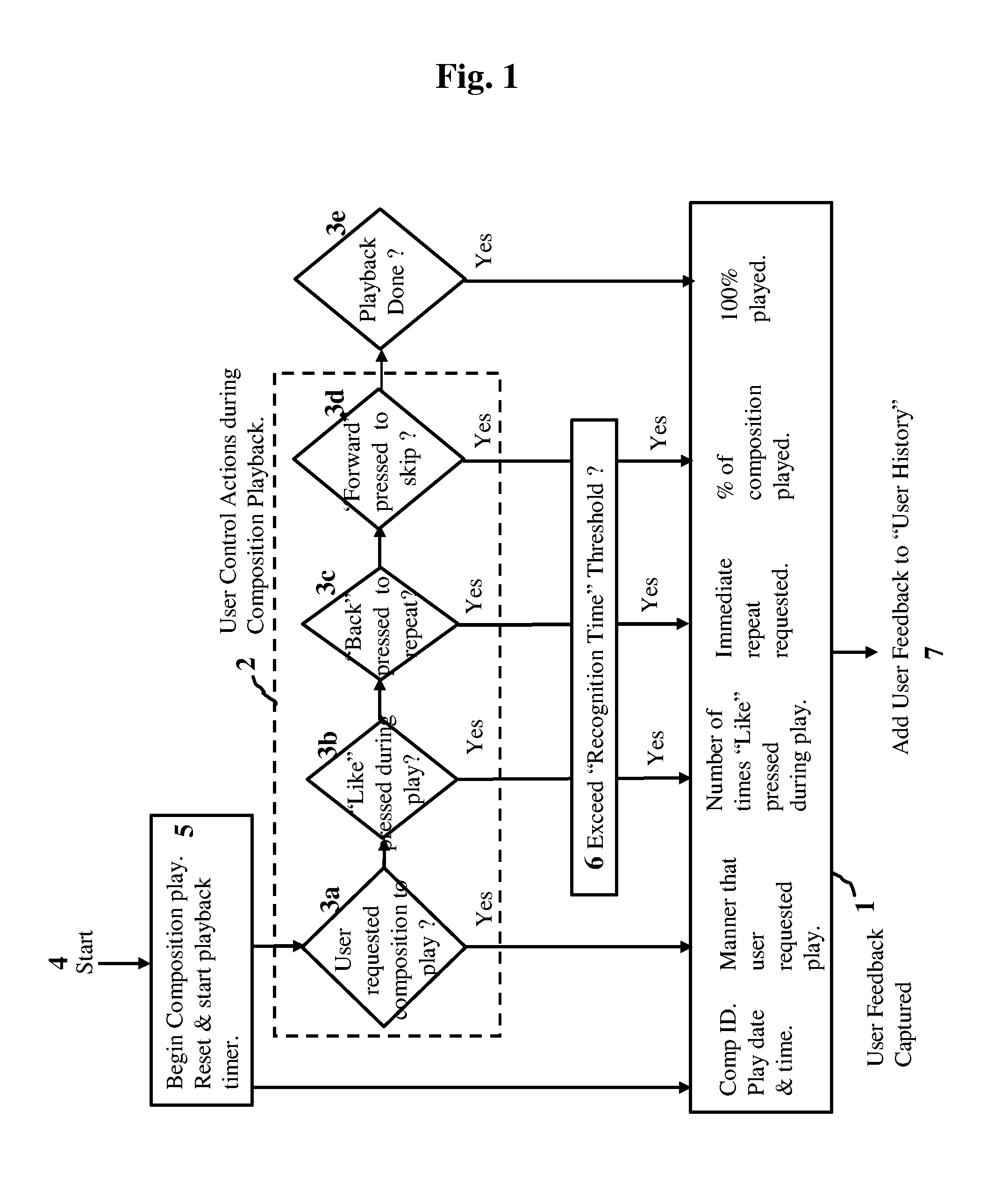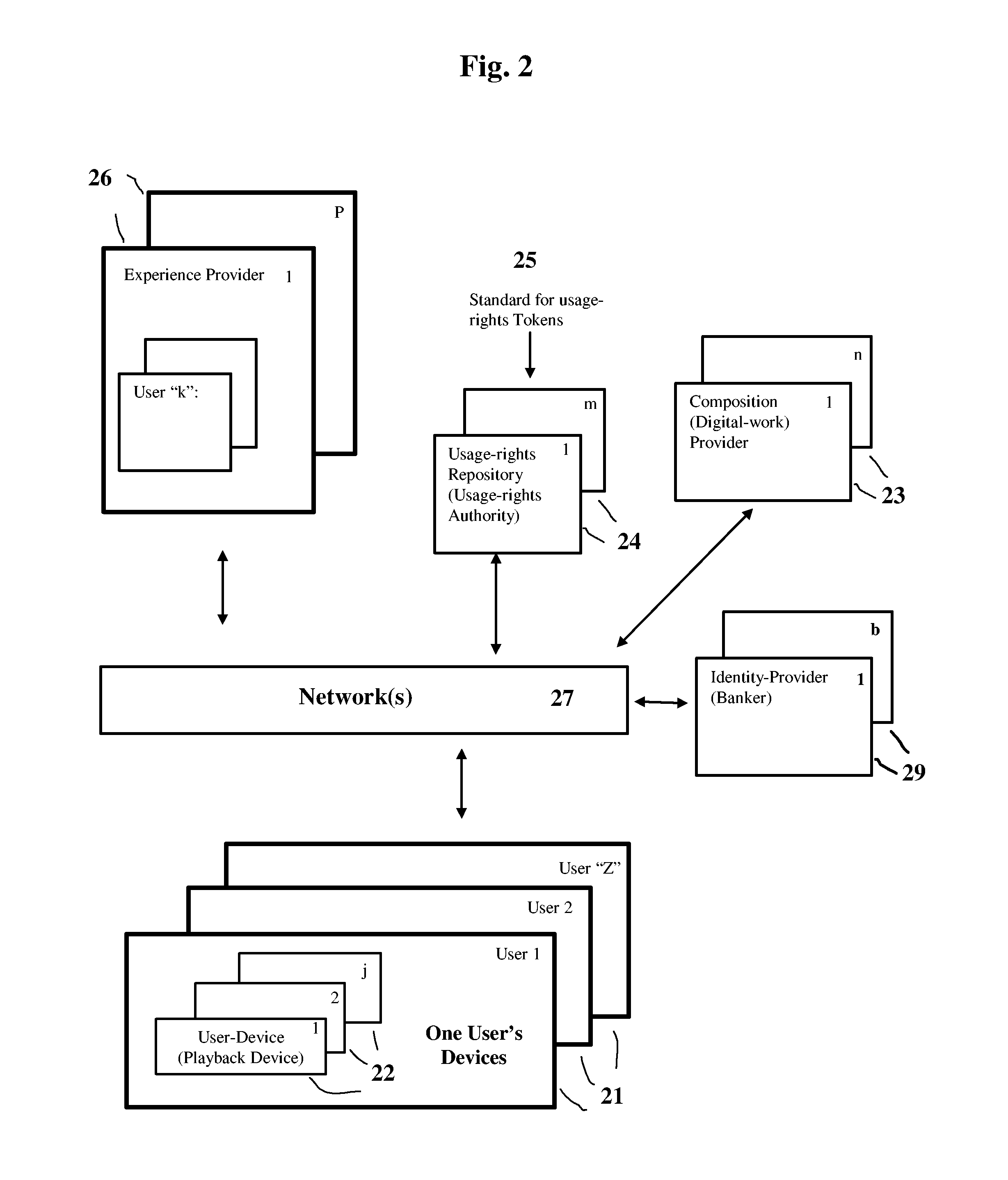Some of the numerous limitations and inconveniences associated with links to web pages to acquire compositions include:The user is often overwhelmed by the number of possible links available and the maze of links they have activated.The user must decide to activate a link to the
web page offering the CD or a download of the composition.Even if the user follows the link, they must
commit to a purchase in the short time the user is still at the
web page.Even when the user follows the link to the
web page, the user may not have enough immediate interest or time to
commit to a purchase.If the user postpones a purchase, it is unlikely the user will be able to find or return to the offering web page later.
In addition, both purchased media (e.g., compact disks) and songs downloaded to a
personal computer have numerous additional limitations and user inconveniences which typically result in few user purchases.
User inconveniences associated with purchased
physical media such as CD's, DAT, tapes, and DVD's include:The user must expend considerable effort to be able to identify what they want and then to locate the media at a vendor and then purchase it.In order to purchase a media, the listener must be able to identify the specific album desired by title, artist and / or other information.
Often, the desired
physical media may not be at the desired user's location.Media players hold only a limited of number of
physical media so the user is limited to a playback
stream from a limited number of media at any one time.For certain locations, such as in an automobile, the locating, handing and inserting the media may be a safety
distraction.The order of playback is limited to the composition order on the media, the random ordering of the media compositions and / or perhaps a playlist the user manually defines.
Physical media (the user's collection) may be lost or damaged from events such as a hurricane,
tornado, flood, fire or theft.The media is subject to
scratching or other physical damage which may degrade playback quality over time.
The user has to either create
backup copies beforehand or purchase replacement copies.The physical media itself may degrade over time and have a physical lifetime which is much shorter than the users.In addition, due to the
rapid rate of technological change, vendor support for a given media format and their compatible playback devices may be less than the user's lifetime.
User inconveniences associated with downloaded compositions that are stored locally on the hard disk of a user's
personal computer [such as Apple iTunes] include:With Apple iTunes, a user is only allowed to download the composition once per purchase.
A user may lose their purchased usage-rights if this local user-device (typically a
personal computer) is lost due to an event such as a hurricane,
tornado, flood, fire or theft.
Without a
backup copy, any damage or loss of the personal computer's hard disk will result in an unrecoverable loss of the user's collection and the user would be required to repurchase and rebuild their collection again from scratch.
Many users do not perform regular backups because of the time and effort involved.
Even when backups are done, users often keep their
backup copies in close proximity to their computer hard drive, which may not protect against loss or damage from events such as a hurricane,
tornado, flood, fire or theft.With Apple iTunes, a purchased song may be authorized for use on only 5 user-devices (of an authorized type) at a time.
Such transfers are particularly difficult when the user-devices are at different physical locations (such as home, work, automobile, etc.) or are not easily portable.Overall, an iTunes user must expend significant time and effort to acquire, download, backup, and transfer songs between their user-devices and to authorize / de-authorize their collection of songs at each user-device.
 Login to View More
Login to View More  Login to View More
Login to View More 


